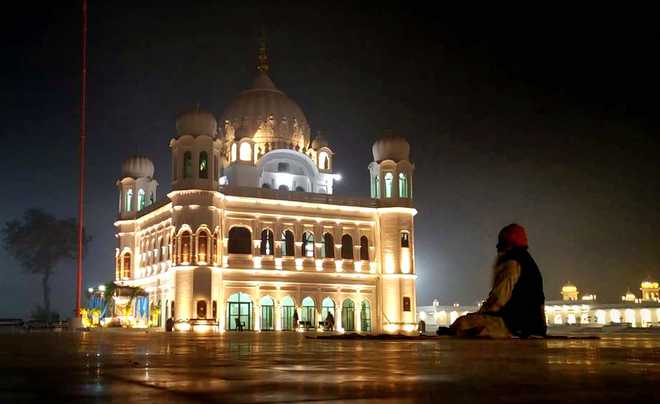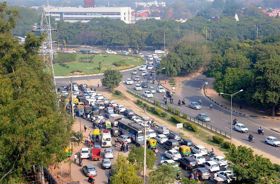
Brig Jagbir Singh Grewal (retd)
The sight of multitudes of devotees with hands folded in reverence, patiently awaiting their turn at the Dhussi Bundh at Dera Baba Nanak to pay obeisance from a distance to the holy shrine of Gurdwara Kartarpur Sahib used to inspire awe. Even in 1999, during Operation Parakram in the aftermath of Pakistan’s Kargil misadventure, when we were on the verge of the outbreak of hostilities, and manning our defences, the presence of undeterred worshippers remained.
Dera Baba Nanak was my sector of responsibility then. Moving along the International Border fencing, irrespective of our faith, we would bow before the shrine, located just across the Ravi. It evoked a feeling of onerous responsibility on us, of defending the sector at all costs, and one day secure the enclave that lay ahead of us, up to Gurdwara Kartarpur Sahib. The troops’ resolve was further strengthened when our patrol moving along the border fencing was told by Pakistani personnel on their side that though there was a lot of development in India, ‘hamare paas Kartarpur Sahib hai’. The milky white domes and spires of Gurdwara Sahib evoked a benign assurance that all was well and that our prayers would be answered.
It is amazing that the Army’s deployment along the International Border at Dera Baba Nanak always has a profound effect on the psyche of the jawans, which remains unprecedented, and perhaps a rare phenomenon in any other defended sector. This was realised when one day, the overwhelmed Commanding Officer of 8 Sikh Light Infantry Battalion informed me in good humour that the company deployed along Gurdwara Baba Budha at Ramdas had turned vegetarian and shunned the consumption of liquor, and that they visited the adjoining gurdwara whenever they had the time and opportunity. No wonder that despite the presence of a large number of pilgrims in the ancient town of Dera Baba Nanak, the Army personnel were never considered outsiders and encroachers on their amenities, but were gratefully accepted by the local hospitable people as equal partners in their ventures for managing the safety and security of the town and its precincts.
The prayers of the then Dera Baba Nanak railway station master, too, have been answered. He would nostalgically speak of the bygone imperial era and lament that the spacious, well-furnished first-class waiting room of the railway station, barely 2 km from the border, was the least used amenity. There being virtually no passengers at the terminal station, the considerate railway station master offered the waiting room to us as a suitable hall for our use, though we could never avail of his offer. Now, with the railway station being upgraded, it has brought the sheen back to the railway station as well.





















